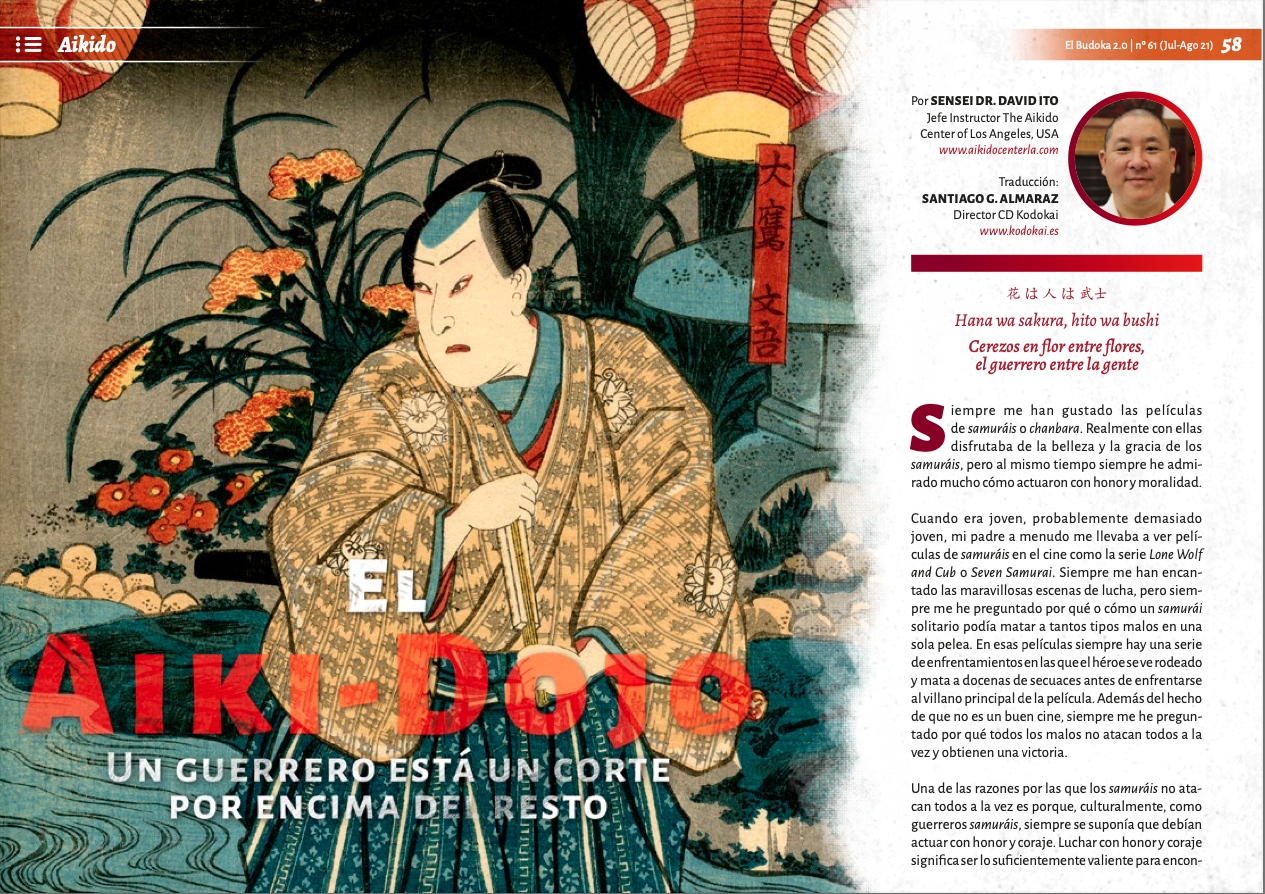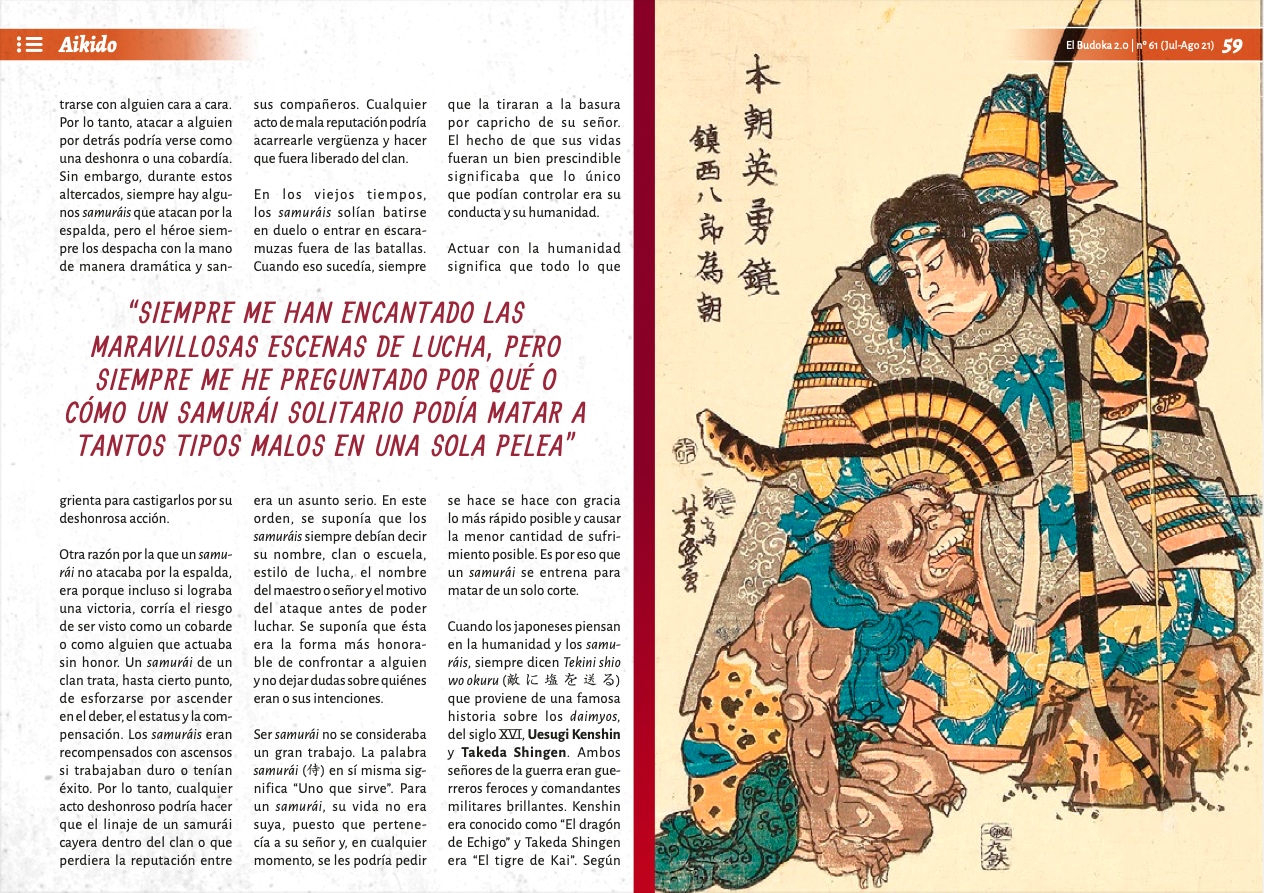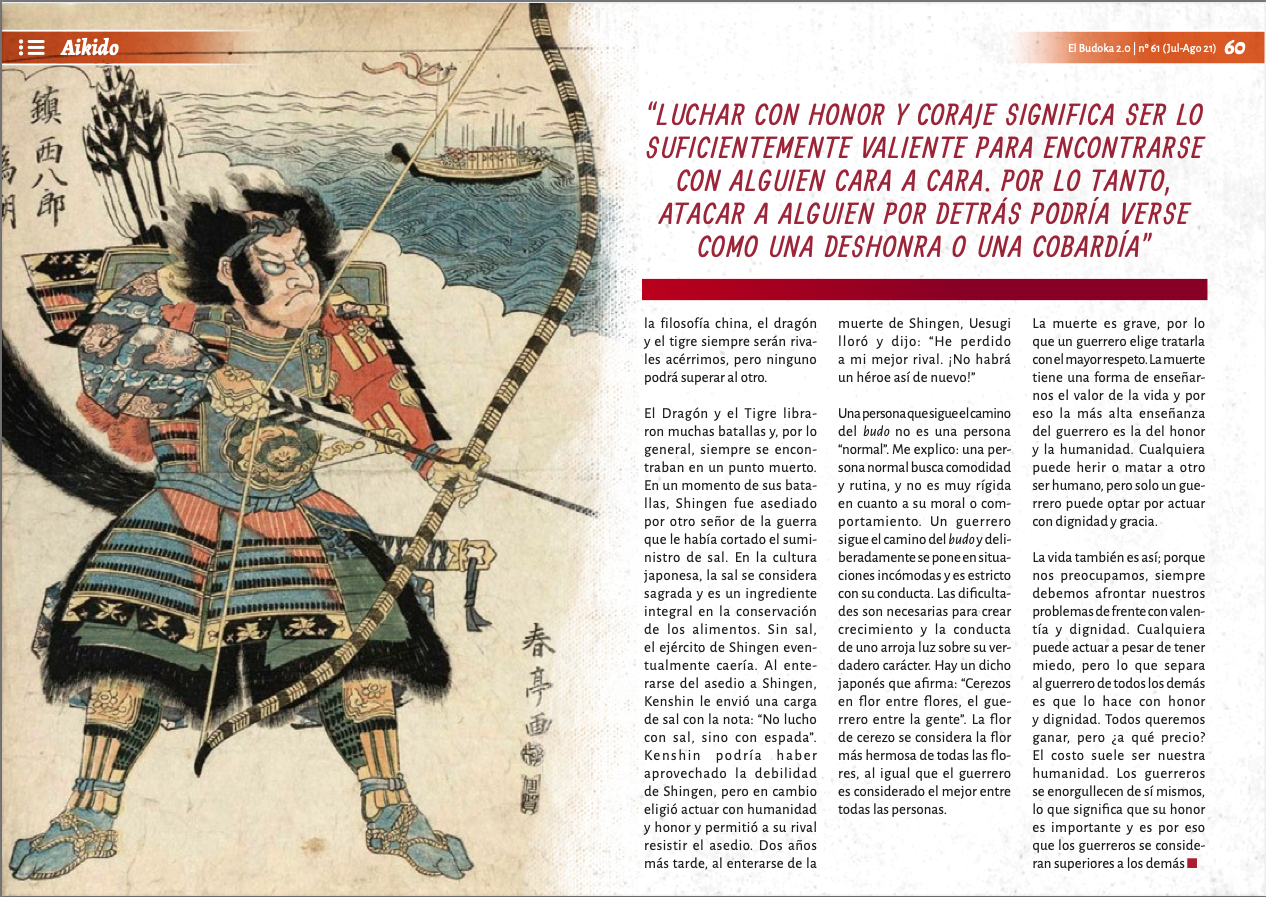This article originally appeared in the July issue of the Spanish language magazine, El Budoka
花は人は武士
Hana wa sakura, hito wa bushi
Cherry blossoms among flowers, the warrior among people
I have always loved samurai or chanbara movies. I really enjoyed the beauty and grace of the samurai but also I really admire how they always acted with honor and morality.
When I was young, probably too young, my father often took me to see samurai movies in the movie theatre like the Lone Wolf and Cub series or Seven Samurai. I have always loved the wonderful fight scenes, but I have always wondered why or how a lone samurai could kill so many bad guys in one fight. In those movies, there is always a series of showdowns as the hero gets surrounded and kills dozens of henchmen before facing off with the movie’s main villain. Besides the fact that it doesn’t make for good cinema, I have always wondered why all the bad guys don’t just attack all at once and score a victory.
One reason as to why the samurai don’t attack all at once is because culturally as a samurai warrior, they were always supposed to act with honor and courage. To fight with honor and courage means to be brave enough to meet someone face to face. Therefore, attacking someone from behind could be seen as dishonorable or cowardice. However, during these altercations, there is always a few samurai who attack from behind but the hero always handedly dispatched them in dramatic bloody fashion to punish them for their dishonorable action.
Another reason why a samurai didn’t attack from behind was because even if a they did score a victory, they risked being seen as a coward or as someone who acted without honor. A samurai clan is, up to a certain point, about striving to move upward in duty, status and compensation. Samurai were rewarded with promotions if they worked hard or were successful. Therefore, any dishonorable act could cause a samurai’s stock to fall within the clan or cause them lose face amongst their peers. Any disreputable act could bring shame upon them and cause them to get released from the clan.
In the old days, samurai often dueled or got into skirmishes outside of fighting battles. When that happened, it was always a serious affair. In this order, samurai were always supposed to state their name, clan or school, style of fighting, teacher or lord’s name, and the reason for attacking before they could fight. This was supposed to be the most honorable way to confront someone and leave no doubt as to who they were or their intentions.
Being a samurai was not considered a great job. The word samurai (侍) itself means “One that serves.” For a samurai, their life was not their own as it belonged to their lord and at a moments notice, they could be requested to throw it away at the whim of their lord. Their lives being an expendable asset meant that the only thing that they could control was their conduct and their humanity.
Acting with humanity means that whatever is done is done with grace as quickly, and causes the least amount of suffering possible. That is why a samurai trained to kill with one cut.
When the Japanese think of humanity and the samurai they always say, “Tekini shio wo okuru” (敵に塩を送る) which comes from a famous story about the 16th century daimyos Uesugi Kenshin and Takeda Shingen. Both warlords were fierce warriors and brilliant military commanders. Kenshin was known as “The Dragon of Echigo” and Takeda Shingen was “The Tiger of Kai.” According to Chinese philosophy, the dragon and tiger will always be bitter rivals but neither will ever be able to best the other. The Dragon and Tiger fought many battles and were generally always at a stalemate. At one point during their battles, Shingen was under siege by another warlord who had cut off his supply of salt. In Japanese culture, salt is deemed sacred and it is an integral ingredient in preserving food. Without salt, Shingen’s army would eventually fall. Hearing about the siege upon Shingen, Kenshin sent him a load of salt with the note, “I do not fight with salt, but with the sword.” Kenshin could have capitalized on Shingen’s weakness, but instead he chose to act with humanity and honor and enabled his rival to weather the siege. Two years later, upon hearing of Shingen’s death, Uesugi wept and said, “I have lost my best rival. There won't be a hero like that again!”
A person who follows the way of budo is not a normal person. A normal person seeks comfort and routine and isn’t very rigid about their morals or behaviors. A warrior follows the way of budo and purposely puts themselves in uncomfortable situations and is strict about their conduct. Hardship is necessary to create growth and one’s conduct sheds light on their true character. There is a Japanese saying, “Cherry blossoms among flowers, the warrior among people.” The cherry blossom is considered the most beautiful flower of all flowers just as the warrior is considered the best among all people.
Death is serious and so a warrior chooses to treat it with the utmost respect. Death has a way of teaching us the value of life and so the highest teachings of the warrior is that of honor and humanity. Anyone can hurt or kill another human being but only a warrior can choose to act with dignity and grace.
Life is like that too; because we care, we must always face our problems head on with courage and dignity. Anyone can act despite being afraid, but what separates the warrior from all others is that they do it with honor and dignity. We all want to win, but at what cost? The cost is usually our humanity. Warriors take pride in themselves which means that their honor is important and that is why warriors fancy themselves a cut above all others.



